Best Vitamins for Hormonal Acne: Clear Your Skin
You might eliminate all the 99 problems in life, but that one problem is consistent. Acne can become a part of life that gets extremely difficult to remove. While you are disappointed with this condition and wondering what to do next, why not try some vitamins?
Since your health can significantly improve with various supplements found nowadays, there are useful vitamins for improving hormonal acne. But which is the best vitamin for hormonal acne, and is it the right one for you? The answer might surprise you.
Various vitamins, either in food sources or supplements, or even those for external application, can significantly change your skin health. Mostly, different vitamins work to reduce sebum production. They also have antioxidants and anti-inflammatory properties, all needed to prevent or remove acne.
Learn more about vitamins, supplements, natural foods, and lifestyle changes that can help you treat hormonal acne.
Can Supplements Help Treat Hormonal Acne?
The use of supplements for hormonal acne is supported, but there still needs to be evidence to prove it works. Some studies raise concern over excessive vitamin and mineral intake for controlling acne.
Most of the supplements include useful elements needed to treat acne. They usually have different vitamins and minerals that prevent acne or improve skin conditions. Recognizing that relying solely on dietary supplements is unlikely to cure hormonal acne is crucial.
It all depends on your health condition and what your health expert suggests to remove acne problems.
What Triggers Hormonal Acne?
The root cause typically lies in a hormonal imbalance within the body. When male hormones, particularly androgens like testosterone, surpass female hormones, such as estrogen, it can result in acne breakouts. Imbalances like excess estrogen, insufficient progesterone, and dysregulated cortisol can also cause acne to acne-prone skin.
Various life events and conditions can instigate these hormonal changes and, consequently, hormonal acne. These include puberty, the menstrual cycle, pregnancy, menopause, polycystic ovary syndrome (PCOS), and factors like viral infections or bodily toxicity.
Usually, acne around the chin or the jawline is caused by hormonal imbalance.
How do Hormones affect the Skin?
Hormones significantly impact the skin, influencing sebum production, acne development, and skin aging. Androgens stimulate sebaceous glands, increasing oil production and acne, while hormonal fluctuations during the menstrual cycle can trigger acne flare-ups. Pregnancy and aging bring about hormonal changes that affect skin elasticity, moisture, and collagen production, contributing to melasma and wrinkles.
If you have other conditions, hormonal imbalance can also significantly impact the skin.
Hormonal Acne in Men and Women
Hormonal acne affects men and women but is usually more complicated in women. In both cases, androgens, commonly known as male hormones, play a crucial role. In males, increased androgen levels during puberty can lead to heightened sebum production and acne.
For women, hormonal acne is often linked to the menstrual cycle. Additionally, conditions such as polycystic ovary syndrome (PCOS) can cause elevated androgen levels in women, contributing to persistent hormonal acne. While the specific triggers and patterns may differ, hormonal acne is difficult in both men and women and needs medical attention.
Best Vitamins for Improving Acne
Vitamins can benefit hormonal acne as they have antioxidants, decreasing inflammation and promoting a hormone balance. Some essential vitamins for acne include vitamins A, C, E, and B complex.
Supplements like MegaFood Skin, Nails & Hair 2, Nature’s Bounty Extra Strength Hair, Skin & Nails Softgels, or Solgar Hair Skin and Nails are top-rated for providing vitamins A, C, D, and E.
On the other hand, Amazing Grass Greens Superfood Detox & Digest is great with vitamins, including vitamin K, and some herbal elements. Garden of Life, Multivitamin for Women, is perfect for women with hormonal problems with different vitamins and other valuable elements.
Vitamin A
Vitamin A is a vital nutrient for skin health, mostly used as retinol or retinoids on the skin. Oral vitamin A may also be beneficial, as it has anti-inflammatory effects by enhancing the body’s antioxidant response to remove free radicals. Besides, research indicates that vitamin A can reduce sebum production from sebaceous glands, eventually improving acne problems.
However, taking vitamin A in topical application rather than oral supplements is better since it is a fat-soluble vitamin. Excess intake is, therefore, harmful to the body. Either take provitamin A in fruits and vegetables like carrots, sweet potatoes, and squash or convert to retinol. Animal foods, dairy, and organic meat contain preformed vitamin A. You can also take vitamin A from supplements in low amounts.
However, pregnant women must regulate their provitamin A intake, as excessive amounts can pose risks to a developing baby.
B Vitamins
The B vitamins collectively play a crucial role in hormone balance and cellular health, influencing hormonal acne. They support liver function, aiding in detoxification and controlling estrogen levels.
Vitamin B3 with niacin can reduce oil production, which usually causes acne problems.
Vitamin B5 might effectively diminish oil production and enhance overall skin health to improve skin health and reduce acne. Vitamin B5 is believed to possess antioxidant properties to safeguard the skin from free radicals. However, proven studies are still needed to confirm the benefit of vitamin B5 for acne.
On the other hand, vitamin B6, in particular, contributes to hormonal balance by increasing progesterone levels and reducing estrogen. The B vitamins are essential for energy metabolism and cellular function. Insufficient B vitamin levels can result in dry skin and acne. So, you need to maintain a B-complex supplement for managing hormonal acne.
Vitamin C
Vitamin C is crucial in removing inflammation that contributes to acne breakouts. Its collagen production and wound healing support also help minimize spots and blemishes.
While most rely on topical applications, supplements, and vitamin C-rich foods, your diet ensures an internal supply to benefit your skin. Foods such as berries, citrus fruits, leafy greens, and tomatoes are ideal sources of vitamin C.
Vitamin D
Vitamin D has shown promise in addressing various skin issues, including acne, as it also has anti-inflammatory. Given the crucial role of vitamin D in immune health and the impact of the immune system on skin health, it may help regulate immune pathways associated with acne.
Research indicates a possible connection between low vitamin D levels and worsening acne, so it’s essential to increase Vitamin D levels in the body. While sun exposure is the best source of vitamin D, supplementation may be necessary, especially during the winter or for individuals with limited outdoor exposure. Additionally, small amounts of vitamin D can be found in fatty fish, eggs, and mushrooms. It is better to make a combination using natural sources and supplements.
Vitamin E
Vitamin E boasts antioxidant and anti-inflammatory properties that contribute to skin health. While topical vitamin E is often sought for skin regeneration and healing, you also need supplements. If used topically through ointments or creams, you will see noticeable changes in acne problems, blemishes, and hyperpigmentation.
Research has linked low levels of vitamin E, in conjunction with vitamin A, to acne. Another study observed elevated acne, eczema, and psoriasis rates in individuals with vitamin E deficiency. Food sources like nuts, seeds, and oils contain vitamin E. Still, supplements can be considered for additional support in maintaining optimal levels.
Other Minerals and Supplements for Removing Acne
Zinc
Healthcare professionals often recommend zinc for hormonal acne due to its role in skin health and collagen synthesis. It aids in acne management by reducing sebum production and maintaining balanced inflammation levels. It also has antimicrobial properties that combat acne-causing bacteria.
Taking around 400 to 600 mg of zinc sulfate daily for 12 weeks can effectively reduce inflammatory acne. However, high zinc doses may cause stomach upset, and lower zinc levels are associated with severe breakouts. So, you need to maintain a dose based on your condition. It’s better to manage the zinc dose with supplements with dietary sources like shellfish, organ meat, beans, and pumpkin seeds.
Probiotics
Probiotics, beneficial bacteria, are crucial in balancing the microbiome and aiding gut function. Probiotics can rebalance the gut by introducing specific strains, reducing inflammation associated with skin and hormone imbalances.
Studies indicate that probiotics may alleviate acne that is caused due to bacterial growth. Take probiotic-rich foods like yogurt, kombucha, sauerkraut, and kimchi, along with targeted supplementation to improve acne.
Omega-3
Omega-3s, essential fatty acids in fish, flaxseed, and chia seeds, are renowned for their anti-inflammatory properties. They work by interrupting cytokine inflammation signals, which can contribute to issues like acne. Besides, this also offers a clearer skin to improve inflammatory acne. Fish oil can be the best source of beneficial omega-3 fatty acids.
Magnesium
While not commonly associated with acne, magnesium is crucial for maintaining hormonal balance. It aids stress relief and plays a role in hormone metabolism, contributing to estrogen balance by facilitating the excretion of excess estrogen that may lead to hormonal imbalances.
Furthermore, magnesium supports healthy sleep, is a potent anti-aging, and is a skin health practice that improves skin health.
DIM
Cruciferous vegetables like kale, cabbage, cauliflower, and broccoli are often recommended for detoxification due to DIM, a key phytonutrient. DIM supports healthy hormone balance by reducing androgen production. This is useful to reduce PCOS symptoms and acne.
While cruciferous veggies contain indole-three-carbinol (I3C), a precursor to DIM, DIM is more effectively absorbed, making supplementation a convenient option. Besides, this element has several other health benefits.
Myo-inositol
Myo-inositol is a supplement frequently used, particularly in individuals with acne and PCOS. It reduces androgen production to lower sebum and enhances insulin sensitivity.
Closely related to B vitamins, myo-inositol is naturally present in foods like fruits, grains, beans, and nuts, but in limited amounts. You can also take it in supplements with a 2000 mg dosage twice regularly.
Aloe Vera
Aloe vera might benefit acne due to its anti-inflammatory and antibacterial properties. Studies show that topical aloe vera gel significantly reduced pimples, hyperpigmentation, and skin roughness in participants with mild to severe acne.
Berberine
Berberine, a phytochemical with antibacterial and anti-inflammatory effects, might also help hormonal acne. A small study on PCOS symptoms, including acne from high androgen levels, found that berberine supplementation significantly reduced androgen levels and acne. But more studies are needed for proof.
Tea Tree Oil
Tea tree oil, known for its antioxidant, anti-inflammatory, and antimicrobial properties, has been used as an herbal remedy for acne. Clinical trials suggest it might reduce the number of papules and pustules, but results are mixed.
Green Tea
Green tea extract, rich in polyphenols with antioxidant and antimicrobial properties, shows potential for improving acne by reducing sebum production. Reviews indicate that topical green tea extract significantly reduces sebum secretion in human trials and may decrease the number of acne lesions.
Turmeric
Turmeric is also beneficial for hormonal acne due to its anti-inflammatory and antioxidant properties. The active compound in turmeric, curcumin, has demonstrated potent anti-inflammatory and antioxidant effects. This helps to reduce inflammation and improve skin health. Additionally, turmeric is believed to possess antibacterial properties, aiding in eliminating bacteria contributing to acne.
Turmeric can be utilized in two ways: orally as a supplement or topically on the skin. You can either apply a paste on the skin or drink water and a pinch of turmeric to drink regularly. However, it’s essential to note that turmeric can stain the skin, so a gentle cleanser is recommended for removal.
Anti-Acne Diet

Diet is an integral part of skin health and care. Certain high-glycemic carbohydrates, such as pasta, white rice, white bread, and sugar, can rapidly increase blood sugar. This, in turn, prompts the release of insulin-like growth factor 1 (IGF-1), a hormone that can stimulate the oil glands to produce more sebum, raising the risk of acne and inflammation.
Foods like dairy, carbs, saturated and trans fat also increase oil secretion. So, you must maintain a proper diet to maintain hormonal balance and prevent acne.
Some foods to include in the diet for acne-free skin include:
- Whole grains
- Legumes
- Fruits and vegetables, especially carrots, sweet potatoes, spinach, tomatoes, or apricots
- Brown rice
- Quinoa
- Turkey
- Pumpkin seeds
- Beans, peas, nuts, and lentils
Tips to Help Clear Hormonal Acne
Besides taking supplements and vitamins, you can try simple steps to address hormonal acne effectively.
1. Topical Treatments:
To clear the skin, use skin products like cleansers, serums, or moisturizers containing bakuchiol, vitamin C, and alpha hydroxy acid (AHA).
2. Lifestyle Changes:
Opt for a nutritious diet to promote healthy skin. Ensure adequate sleep each night and manage stress levels, as it can contribute to hormonal imbalances and acne.
3. Medicine Cabinet Audit:
Some vitamins, like biotin and B12, or vitamin D, can worsen breakouts. So, don’t go overboard with your supplementation.
4. Address Hormonal Imbalance:
Consult with an endocrinologist or holistic health practitioner to identify and address the underlying causes of your hormonal imbalance.
5. Consider Prescription Medications:
Consult a dermatologist, who can prescribe medications tailored to your condition. This is especially crucial for severe acne or when scarring is a concern. In more severe cases, consider hormone therapy.
Do Natural Remedies for Hormonal Acne Work?
Natural remedies like apple cider vinegar, witch hazel, and tea tree oil prove effective for managing mild to moderate acne, offering potential relief. However, treating hormonal acne is more challenging. Characterized by deeper and more painful lesions, hormonal acne often surpasses the efficacy of natural remedies alone. For this reason, expert suggestion is required for treatment based on your condition. Natural remedies can help with other treatment methods or worsen the situation. Dermatological interventions, including prescription medications like oral contraceptives or spironolactone, may be recommended to address the complexities of hormonal acne effectively.
How to Implement Supplements into Your Skincare Routine for Maximum Benefits?
Supplements and natural skincare can be useful to combat hormonal acne, but they must be done wisely. Supplements work best alongside an effective skincare routine, using non-comedogenic products to avoid pore blockage. Introduce new supplements gradually, avoid overload, and practice patience, as it may take 3-6 weeks to see the full benefits. Consult your healthcare provider before starting any new supplement regimen, incorporating vitamins and minerals into your routine for maximum impact.
When selecting supplements, focus on ingredients like vitamin C, vitamin E, and collagen. Consider supplements supporting overall health, such as omega-3 fatty acids and probiotics. But most importantly, maintain a balanced diet, regular exercise, and sufficient sleep for overall fitness and skin well-being.
FAQ
How often should you take vitamins to improve acne?
This will depend on the person and their condition. If they are deficient in a specific vitamin, they might need to take it regularly for some months. The recommended dosage needs to come from your doctor or healthcare provider.
What is the difference between bacterial vs. hormonal acne?
Hormonal acne occurs due to a hormone imbalance that increases sebum production. On the other hand, bacterial acne is caused when bacteria enter the pores or follicles. Besides, hormonal acne affects the chin and jawline, whereas bacterial acne is seen on the forehead, nose, and other oil-prone areas.
Which supplement is the best for hormonal acne?
No single supplement can be named the best for everyone because it isn’t the same. However, as an imbalance and excess androgen production usually cause hormonal acne, you can take probiotics, DIM, or Myo-inositol for any improvement.
Can supplements or treatments remove hormonal acne permanently?
It’s hard to tell if your skin will ever get acne-free. However, the skin condition will undoubtedly improve significantly with treatment. So, along with supplementation, you should also maintain a proper diet, reduce stress, and exercise regularly.
Bottomline
So, which supplement or vitamins is the best for you? It all depends on your particular skin condition.
Whether you rely on vitamins or other supplements, you need to consult your doctor for the proper vitamin, dose, and timing. You should also take supplements that have third-party certifications. However, do remember that no synthetic or herbal supplement is proven with scientific evidence to treat hormonal acne completely. They are effective to some extent, but not the prescribed treatment.
Consider changing your daily routine rather than simply taking medications or supplements regularly. Exercise more often, avoid unhealthy and especially fatty foods, and reduce stress with a proper sleep routine. Two can do the work better!

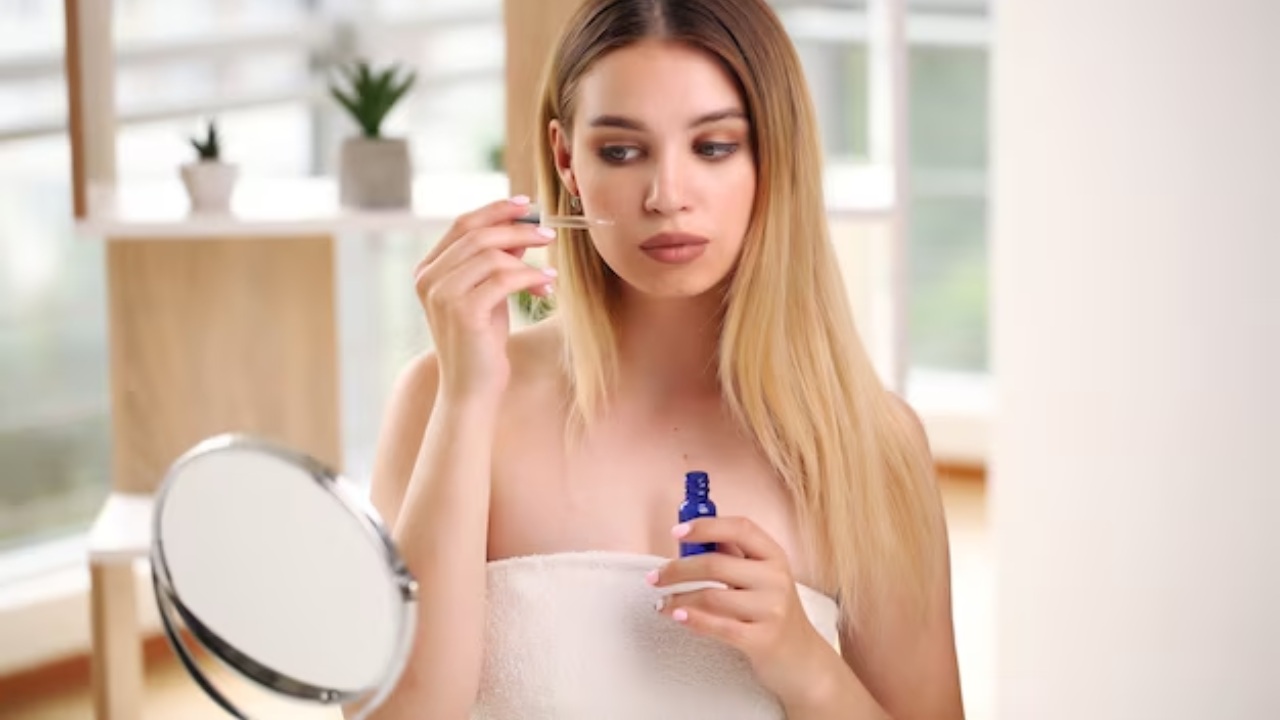
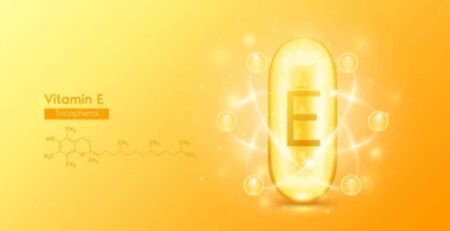
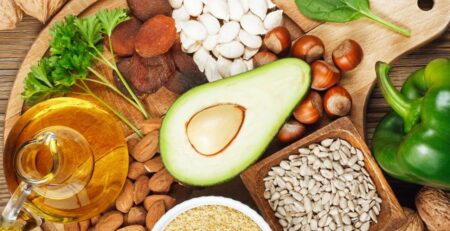
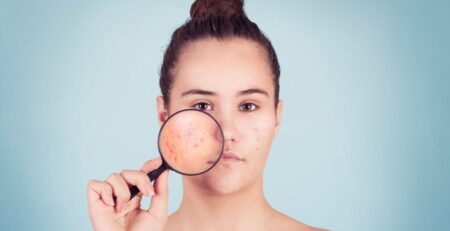

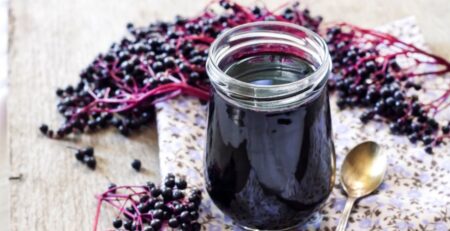
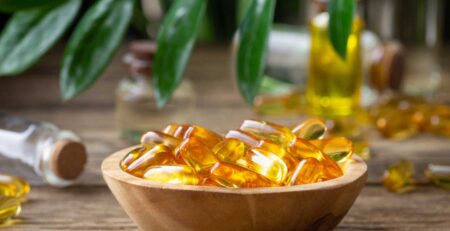

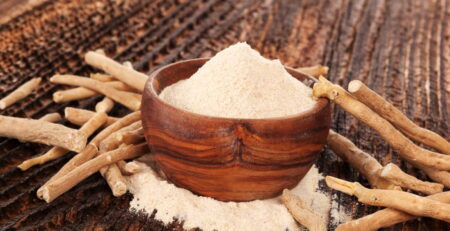
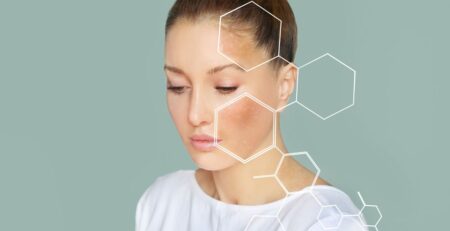

Leave a Reply